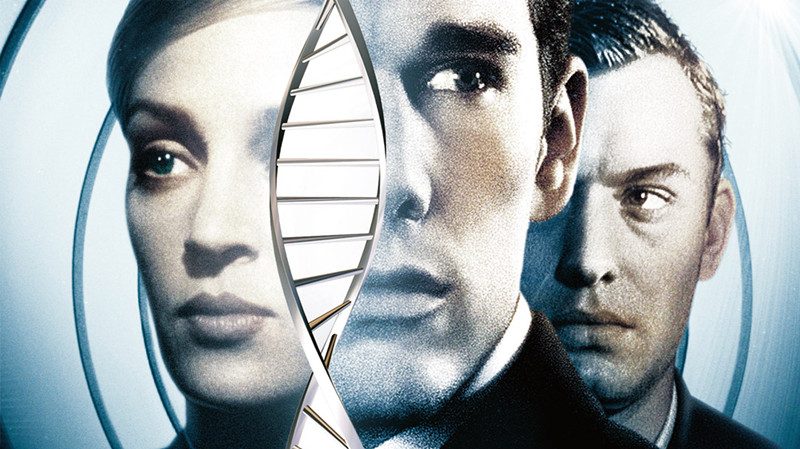
Like no other genre, science fiction in film has the capacity to create situations, characters, and narratives that can stretch the limits of what can be done in a narrative. Untethered to any responsibility of reflecting reality, sci-fi can travel to the ends of the galaxy, create beings out of whole cloth, and allows for the inexplicable–if not impossible–to occur. And while sci-fi movies are often associated with big-budget, effects-driven spectacles, the genre also allows for films that investigate incredible, thought-provoking concepts and ideas that would otherwise be impossible through any other type of film.
Sometimes these ideas become so well-known they penetrate popular culture and become part of everyday vocabularies; in a few instances, they become shorthand for or create a new concept that enters the vernacular. But as it is with any genre, there are a number of great, thought-provoking sci-fi films that aren’t well-known outside of its core fan base.
However, these films shouldn’t be slept on–they are standout examples of just how sci-fi can transcend the expected tropes of alien monsters, spaceships, and far-out technologies to deliver insightful stories that investigate the nature of being alive and elucidate difficult philosophical ideas by using the devices of the genre as surgical tools to cut to the heart of the matter. With that in mind, here are 15 of the most thought-provoking sci-fi movies of all time.
15. The Thirteenth Floor (1999)
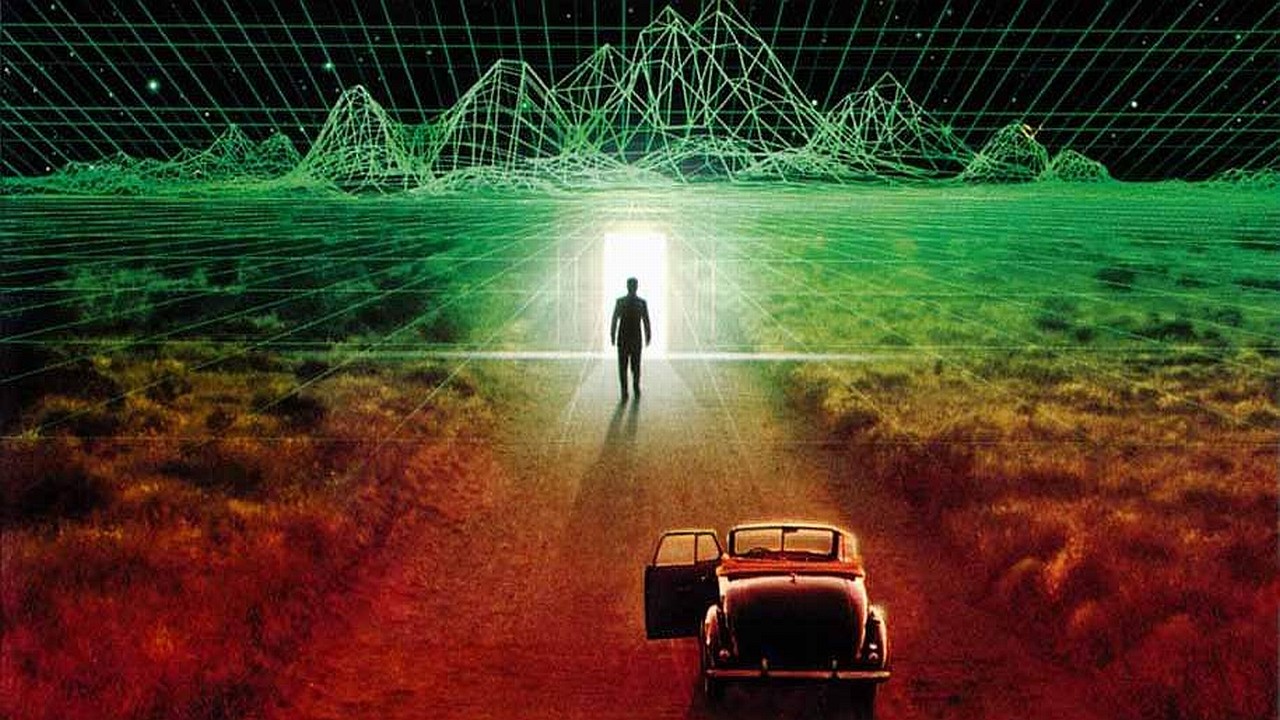
Douglas Hall has been working for years with his mentor to create a simulated world that is a representation of 1937 Los Angeles. When his mentor is murdered, he becomes a suspect and finds an ally in the long-lost daughter of his mentor, Jane (Gretchen Mol). Entering the simulation he and his mentor built, Hall finds messages left for him that also reveal to the inhabitants of the VR world that they are just artificial creations. But as the story unravels, Hall begins to suspect there is much more (or less) to his own world than it first appears…
Jokingly described by its star, Craig Bierko, as “The Matrix without the special effects,” The Thirteenth Floor is adapted from the 1964 science fiction novel Simulacron-3 by Daniel F. Galouye. What it lacks in special effects it more than makes up for in atmosphere and suspense, with stylish direction by Josef Rusnak and solid performances that affect the viewer in a way that may lead them to question if the world they inhabit is real or just someone else’s simulation.
14. Moon (2009)

Sam Bell (Sam Rockwell) is nearing the end of his three-year contract working on the Sarang Station on the moon for Lunar Industries, where he harvests helium-3 from the soil for use as fuel back on Earth.
Looking forward to returning home, he goes outside in the lunar rover to retrieve a canister when a hallucination distracts him, leading him to crash and lose consciousness. He wakes up in the base’s infirmary, where his suspicions are aroused by an unusual communique he overhears the station’s computer have with the base back on Earth. He finds an excuse to go back outside, where he comes across the crashed lunar rover–with a doppelganger of himself inside. Bringing his double back to the base, they discover the horrifying truth of their existence–and one that may doom them both.
Moon was the directorial debut of David Bowie’s son, Duncan Jones, and he captures the otherness of the near-future space station, its unnerving claustrophobia, and the overall surreal tone of the story. Rockwell is outstanding in dual roles playing against himself, and Moon in general is a sci-fi film that keeps the viewer guessing throughout, and thinking about its implications, long after it’s over.
13. Gattaca (1997)
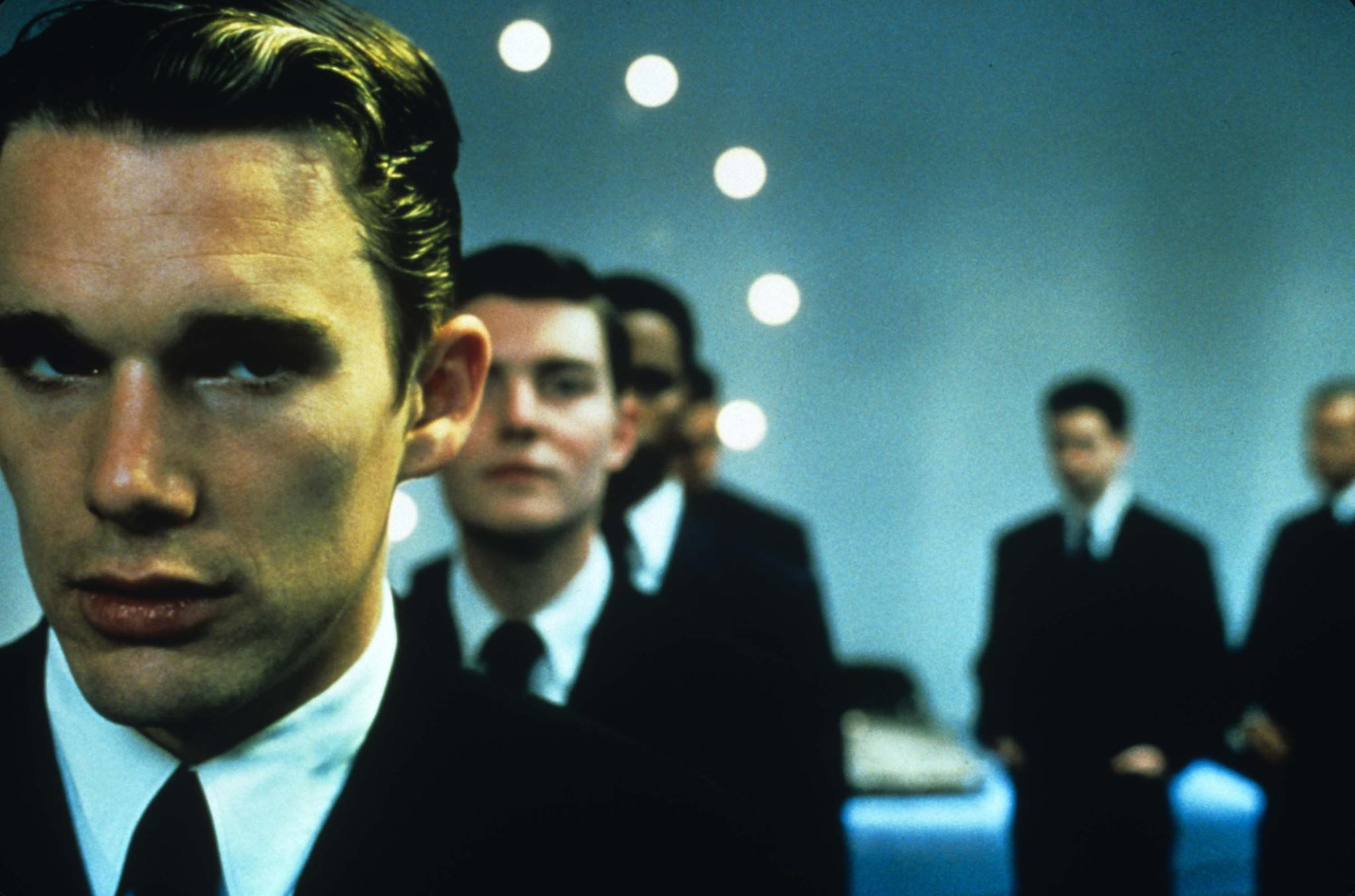
In a futuristic society shaped by genetic engineering, Vincent Freeman (Ethan Hawke) was born naturally but suffers from bad eyesight and a heart defect, which bars him from working for the space agency Gattaca. To get past their genetic tests, he works with Jerome Morrow (Jude Law), whose genes are perfect but is now crippled from a suicide attempt, which makes him ineligible for society’s perks for his genetics.
Vincent assumes Jerome’s uses his hair and blood to pass through genetic tests, but just before going off-world finds himself (his true self) framed for murder. Trying to pass through police scrutiny with Jerome’s genetics while hiding his own, Vincent must get off-world before his true identity is revealed.
A sort of sleeker riff on Aldous Huxley’s Brave New World, Gattaca addresses the potential issues of genetic engineering on human beings and its effect on society as a whole, positing that “perfect” genes may just be used as a new form of discrimination.
Social adherence, identity, and the slippery slope that presents itself when new markers for predetermining success are introduced are also larger motifs of the film. An intelligent sci-fi movie that manages to keep a clipped pace without losing its subtly, Gattaca is a thinking person’s modern sci-fi flick.
12. S1m0ne (2002)
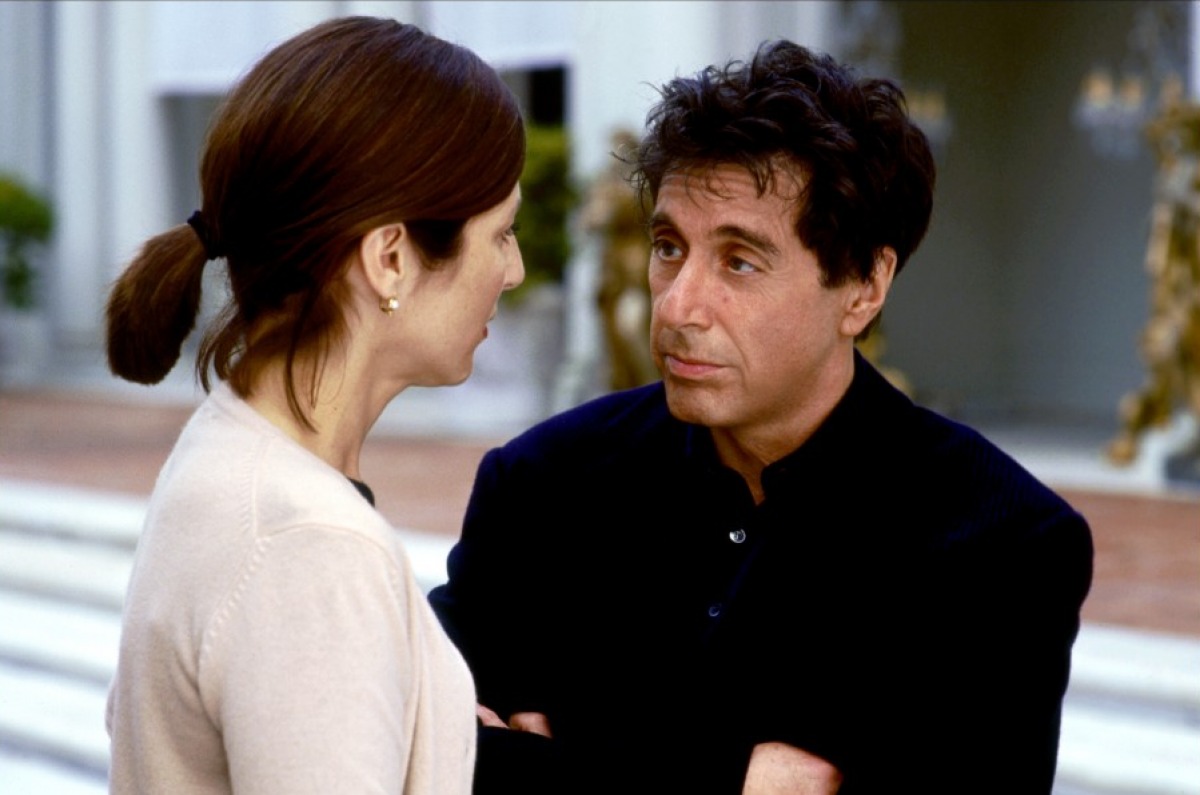
When the star of your film walks off-set and refuses to finish production, what’s a director to do? If you’re Viktor Taransky (Al Pacino), who’s facing the end of his career, you use a digital replacement indistinguishable from a live, three-dimensional actress. Such is the premise of S1m0ne, a 2002 comedy-sci fi film that posits such a situation. Unfortunately for Taransky, the resulting film is a major hit, with accolades pouring in for his talented (and virtual) star.
Trying to market the actress as a real person through phone and remote location interviews, Taransky announces that the actress–simply known as Simone (Rachel Roberts)–is going to be cast exclusively in his future films. But a pair of investigative journalists begin to suspect something isn’t quite on the level about Taransky or Simone–and being unable to produce her alive and well, Viktor is soon charged with murder.
While coming across as somewhat far-fetched sci-fi at the time of its release, with recent advancements in photorealistic graphics S1m0ne seems more like a possible reality for the near-future. After all, actors can be notoriously difficult to work with–wouldn’t it be just so much easier to use simulations that will perform exactly as you please? Off-kilter as a comedy, it seems to function better as a modern fable–and one that could be coming soon to a theater near you.
11. Artificial Intelligence: AI (2001)
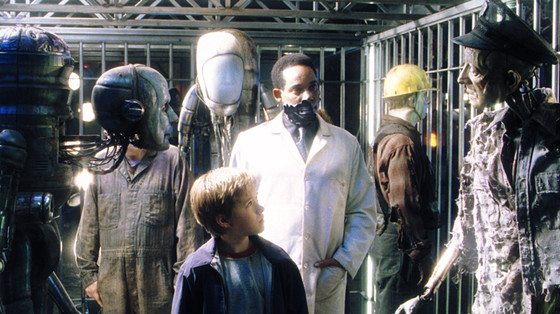
Speaking of modern fables, Artificial Intelligence: AI is specifically presented as one, albeit where the moral of the story is difficult to discern. Is it that just because human beings can build something, it doesn’t mean they should? Or that when the behavior of artificial intelligence becomes indistinguishable from real human thoughts and feelings, they then become human themselves? Or that ultimately, it’s the things humans invent and create that outlive their mortal lifespans, be they stories or machines?
Artificial Intelligence: AI has been sparking interesting commentary and debates as to its myriad meanings since its release in 2001. Initially a Stanley Kubrick project, he passed before filming began and the production was taken over by Steven Spielberg, who softened Kubrick’s edgier concepts and plot points but retained many of his more eye-popping stylistics.
The result is a fascinating and uneasy-to-discern sci-fi film that’s a Spielberg crowd-pleaser with a dark Kubrickian core. With AI once again becoming a popular concept in pop culture, as HBO’s Westworld, Ex-Machina, and Blade Runner 2049 can attest to, revisiting this dense, well-made film adds yet another layer to an emerging narrative on mankind’s relationship with their complex creations.
10. Eternal Sunshine of the Spotless Mind (2004)
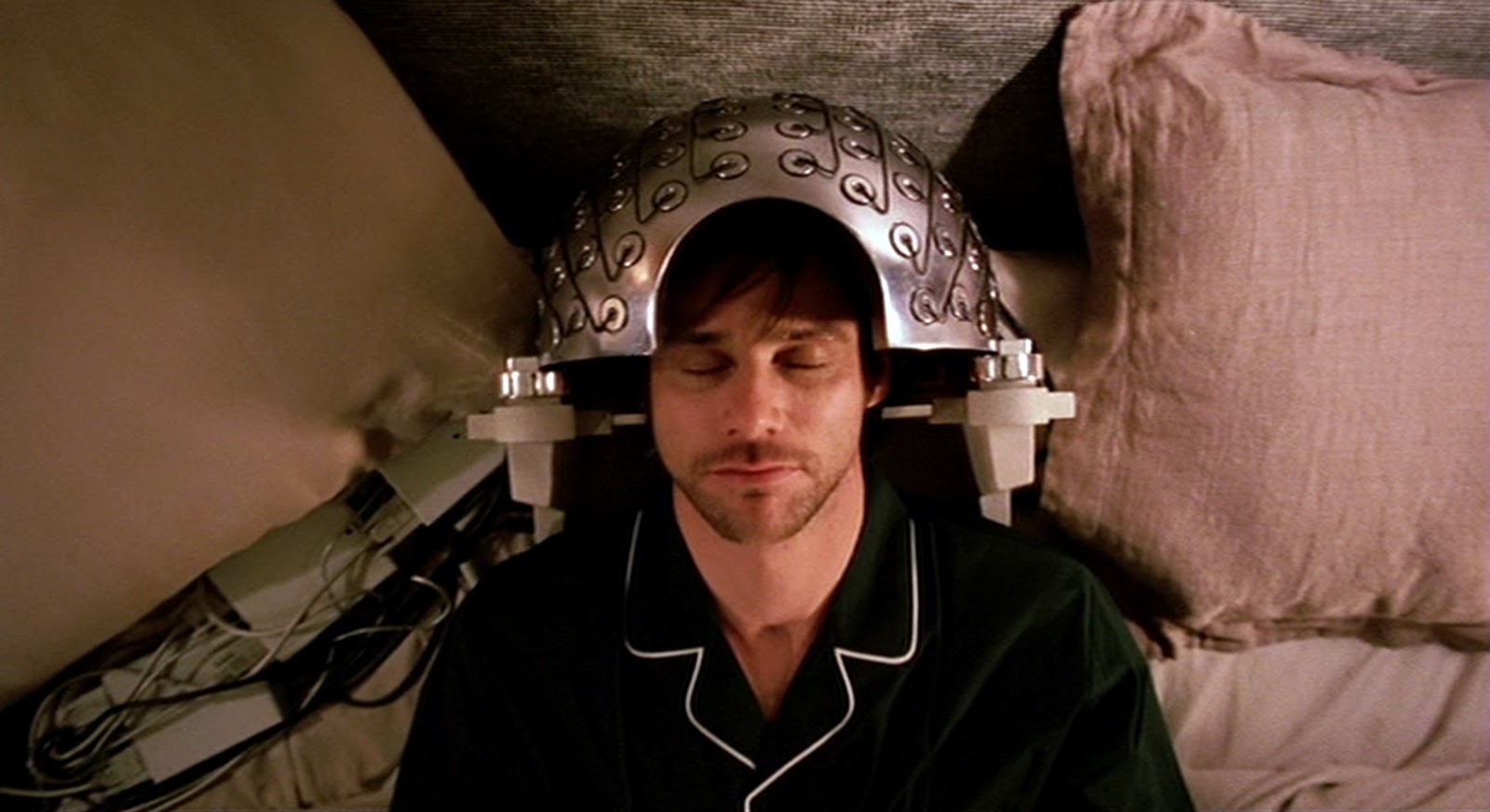
Joel (Jim Carrey) can’t get over his breakup with Clementine (Kate Winslet), even though by all accounts she seems to be moving on with her life without skipping a beat, not even recognizing him when he confronts her at work.
Then Joel finds out that she underwent a procedure to erase him from her memory and decides to undergo the same treatment. But while in a dream-state during the procedure Joel begins to re-experience their relationship–both the good and bad parts–he realizes halfway through that he doesn’t want to lose those memories and tries to fight against the procedure.
Eternal Sunshine of the Spotless Mind is a clever sci-fi film that keeps one foot in reality while most of the film proper takes place within a man’s deteriorating memories. Masterfully directed by Michel Gondry from an out-there script by Charlie Kaufman, Eternal Sunshine is one of the most unique films ever made.
Featuring a career-high performance by Carrey and with Winslet playing a difficult role of both her character and her “character” as she appears in Joel’s memories, Eternal Sunshine leaves the viewer reflecting on the nature of memory and whether they would undergo such a procedure no matter how painful their memories may be. After all, aren’t we made from our collection of memories, both the good and the bad?
9. Contact (1997)

Dr. Eleanor Arroway (Jodie Foster) is a SETI scientist that has endured a long and difficult career attempting to prove that extraterrestrial life exists. When she finally finds potential proof in a repeating signal being broadcast from the Vega system 26 light-years away from Earth, the public reaction is mixed, with some enthusiastic about life elsewhere in the universe and others condemning the idea as being against their religious beliefs.
Things are complicated when it’s discovered that the signal includes schematics for a vehicle that can transport a person to establish first contact, with Arroway facing opposition at being selected for the mission due to her atheism. But when first contact is finally made, it’s far different than what anyone could have expected–especially Dr. Arroway.
Adapted from the Carl Sagan novel of the same name, Contact plays a sleight-of-hand with the audience’s expectations, raising more questions of the nature of religious faith than approaching what potential first contact with an alien race would be like–or if they’re an alien race at all. One of Robert Zemeckis’s best films, Contact is hard sci-fi for those who prefer their science fiction to open more doors to questions rather than answering them.